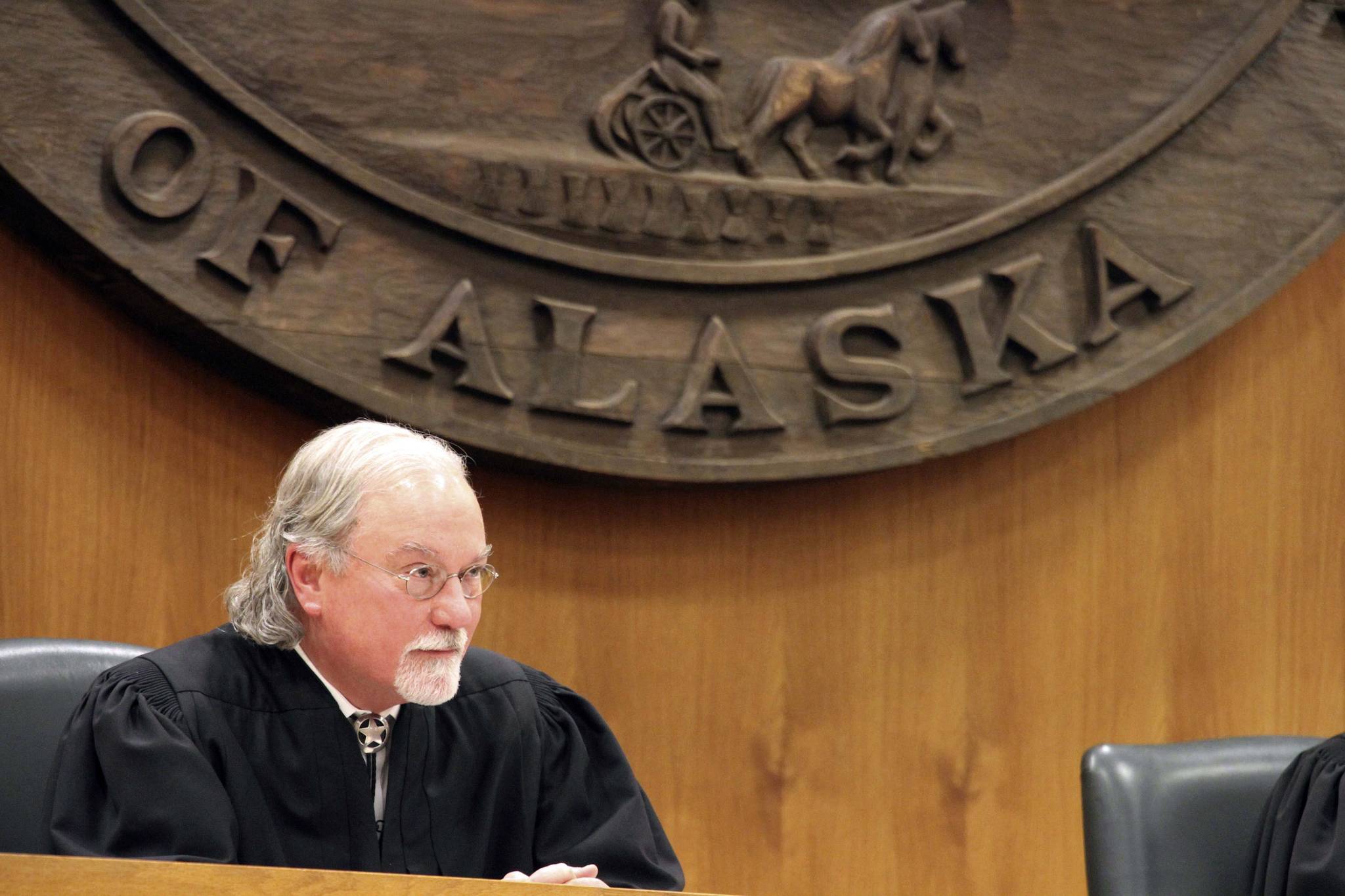ANCHORAGE — An Alaska law promoting fossil fuel development infringes on the constitutional rights of young residents to a healthy environment, a lawyer told Alaska Supreme Court justices on Wednesday.
A lawsuit filed by 16 Alaska youths claimed long-term effects of climate change will devastate the country’s northernmost state and interfere with their constitutional rights to life, liberty and public trust resources that sustain them.
The state’s legislative and executive branches have not taken steps to lower greenhouse gas emissions and adopted a policy that promotes putting more in the air, said attorney Andrew Welle of the Oregon-based Our Children’s Trust group.
“This is an issue that is squarely within the court’s authority,” Welle said.
Assistant Attorney General Anna Jay urged justices to affirm a lower court ruling rejecting the claims. Ultimately, the climate change issues raised by Alaska youth must be addressed by the political branches of government, she said.
“The court does not have the tools to engage in the type of legislative policy making endeavor required to formulate a broad state approach to greenhouse gas emissions,” she said.
The 16 youths sued in 2017 and claimed damages by greenhouse gas emissions are causing widespread damage in Alaska. The lawsuit said the state has experienced dangerously high temperatures, changed rain and snow patterns, rising seas, storm surge flooding, thawed permafrost, coastal erosion, violent storms and increased wildfires.
Our Children’s Trust is a nonprofit organization dedicated to protecting natural systems for present and future generations. The group in 2011 unsuccessfully sued the state, claiming the state failed to adopt measures to protect young people from climate change.
The judge in that case concluded that courts lack scientific, economic and technological resources that agencies can use to determine climate policy and it was best left in their hands.
Anchorage Superior Court Judge Gregory Miller rejected the current case a year ago.
Alaska has no state sales or income tax and historically has relied on the petroleum industry, which extracts crude oil and sends most of it to West Coast Refineries, for much of its revenue.
Welle said state policy promoting fossil fuels, expressed in a state statute, should be declared unconstitutional because it harms young Alaskans by trading short-term financial gains for long-term health problems.
The lead client in the case, Esau Sinnok, has had his constitutional right to health and happiness denied by state policy and lack of action on climate change, Welle said.
“His home village of Shishmaref is literally wiped off the map because of climate change,” Welle said before the hearing. “It’s endangering his culture, the very existence of his community, the health and safety of him and his community members.”
Justice Peter Maassen asked Welle if the energy policy was balanced by other policies in state law, such as protection for natural resources and the environment.
“How can we conclude that government agencies are following the energy policy blindly without consideration of these other policies?” Maassen asked.
Welle said that while statutes provide authority to protect the environment, state agencies have been directed to systemically promote fossil fuels.
Justice Susan Carney called Welle’s attention to a newspaper opinion piece by former Gov. Bill Walker in which he acknowledged severe economic effects of climate change.
“Isn’t that a sign that state policy has balanced those concerns?” she asked.
Welle replied that the court when assessing state policies, and their effects on fundamental constitutional rights, can assess the process, look at decisions and decide if balance struck is the most narrowly tailored choice.
• By Dan Joling, Associated Press

